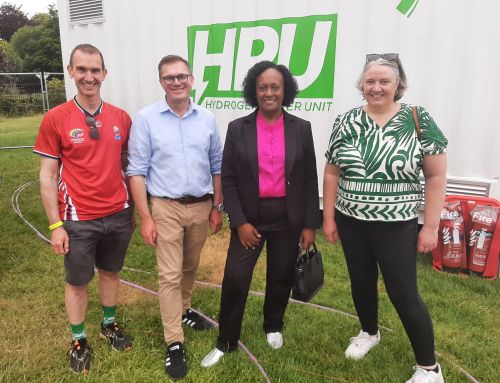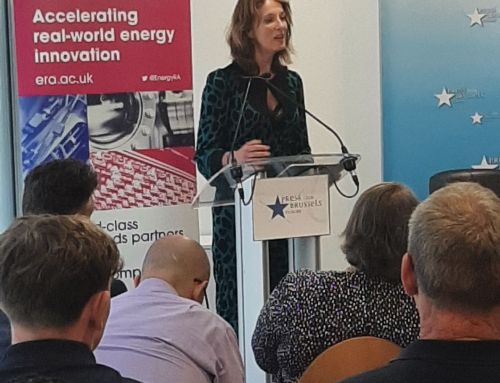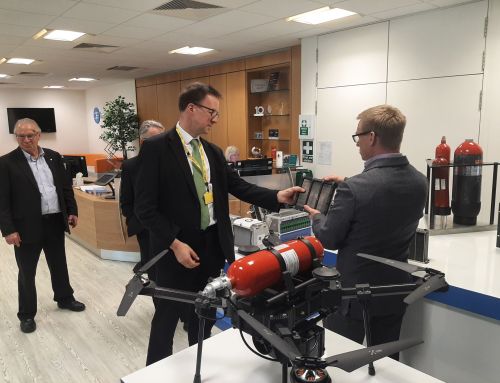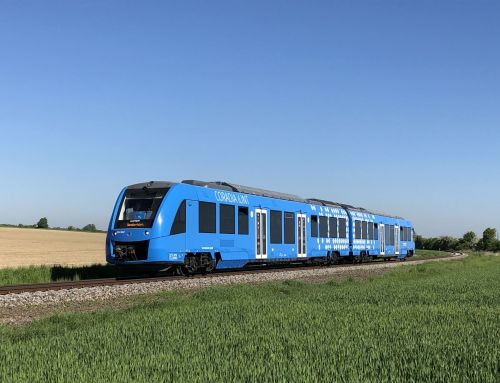Hydrogen trial at Keele could dramatically cut UK’s carbon emissions
Hydrogen trial at Keele could dramatically cut UK's carbon emissions
Keele University has partnered with industry leaders on an innovative green energy trial that could pave the way to saving six million tonnes of carbon dioxide emissions across the country every year.…
25 Sep 2019

Keele University has partnered with industry leaders on an innovative green energy trial that could pave the way to saving six million tonnes of carbon dioxide emissions across the country every year, in the first UK trial of its kind.
Final preparations are now underway for an innovative scheme – named HyDeploy – which is designed to reduce the UK’s CO2 emissions and which is set to be tested at Keele this autumn.
HyDeploy is a pioneering project which seeks to revolutionise the country’s energy network by trialling a blend of up to 20% hydrogen with natural gas, with a goal of providing a safe and efficient alternative to current gas supplies.
The first stage of the programme will see a live trial being run on Keele University’s campus in what will be the first scheme in the UK to inject hydrogen into a natural gas network, and also aims to support the UK Government’s commitment to reduce UK emissions under the new legislation based on the independent Committee on Climate Change.
The trial will see hydrogen being blended with the normal gas supply in part of Keele University’s private gas network, serving 17 faculty buildings and 100 domestic properties. When hydrogen is burned it produces energy and water with no climate changing CO2, meaning HyDeploy is seen as an important step in helping the nation to go green.
The hydrogen will be produced using an electrolyser powered by Keele’s 100% green electricity supply – splitting water into hydrogen and oxygen with zero CO2. The hydrogen will then be injected directly into the current isolated University gas grid at a mix of up to 20%.
Keele’s campus was viewed as the perfect test site as the University owns and operates its own private gas network independent of the UK’s wider network. The University’s sustainability ethos and expertise was also an important factor in the decision to host a trial here, with Keele having launched a new Institute for Sustainable Futures, to drive the climate research agenda.
If the scheme at Keele is successful, HyDeploy will move to a larger test on a public network in the North East, followed by another test in the North West in the early 2020s. This is to ensure that the hydrogen blend is tested across a variety of networks and customer bases, making the results more representative of the UK as a whole.
Professor Mark Ormerod, Deputy Vice-Chancellor and Provost at Keele University and senior lead for sustainability, said: “Energy and sustainability is a key overarching institutional priority for Keele University, and we are delighted to be a partner in this important, highly relevant and prestigious research project. HyDeploy is tackling one of the major societal challenges and has the potential to be hugely impactful and lead to a very significant reduction in carbon emissions globally.”
HyDeploy is being delivered by the HyDeploy consortium, led by Cadent and Northern Gas Networks.
Professor Chris Fogwill, Director of Keele’s Institute for Sustainable Futures said that: “HyDeploy demonstrates the sort of infrastructural changes required as a stepping stone to achieving the UK’s greenhouse gas reduction commitments and a more sustainable future. It also highlights the need for research across both the technical and social challenges associated with changes to our energy systems. Having HyDeploy here at Keele, also provides the opportunity to educate our students, staff and surrounding communities about the shifts in our energy systems which are needed.”
This is part of Keele’s commitment to embedding sustainability into every aspect of the University’s teaching and operations, which also includes Europe’s largest Smart Energy Network Demonstration project on the Keele campus.





